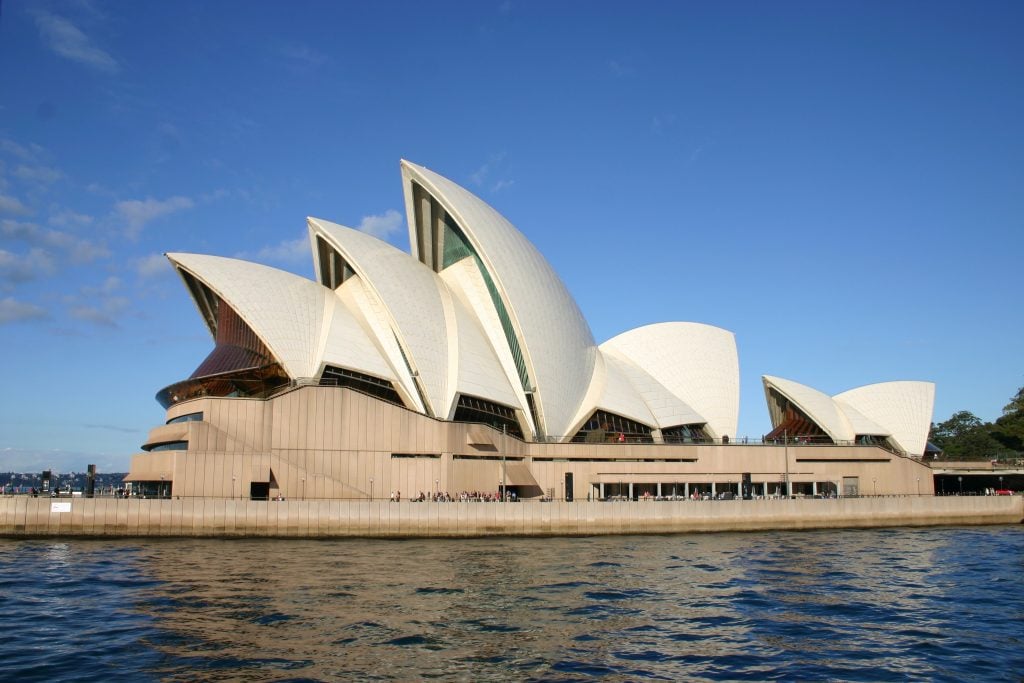In brief
As announced on Monday in the opening hours of Blockchain Week by Minister Jane Hume, the Government released a consultation paper which proposes a new regulatory and licensing regime for ‘crypto asset secondary service providers’ (CASSPrs). This followed a call by Senator Andrew Bragg earlier that day for crypto reforms to be consolidated into a comprehensive legislative package (including a ‘Digital Services Act’), The main regulatory framework tabled could fall outside the existing Australian Financial Services licensing regime and focuses on the ecosystem of those who offer custody, storage, brokering, exchange and dealing services or operate a market in crypto assets for retail clients.
The stated purpose of consulting with the industry and broader public is for the Government to understand whether its proposals will meet its policy aims – to create a predictable and fit-for-purpose legal framework without undue restrictions and to remain technology neutral.
Submissions can be made until 27 May 2022.
Key takeaways
In line with its previous statements on the matter, the Government has noted the rapid expansion in use of crypto assets in Australia. The Australian Taxation Office has found that more than 800,000 Australian taxpayers have transacted in digital assets in the last three years, up 63% in 2021 from 2020. This increased usage has led to risks to consumers which the existing regulatory framework is not designed to manage.
The Consultation Paper suggests that crypto assets are distinct from other types of financial products, and therefore may require a separate regulatory regime. This is in part because crypto assets are often ‘trustless’ (a decentralised, distributed network does what it is designed to do reliably) and more transparent than other forms of financial transactions. As Senator Hume noted in her speech, this was also because a piece of code cannot decide not to turn up to work and is therefore more reliable than a human manager of assets that requires trust, and therefore comprehensive supervision. Some crypto assets should arguably require less regulatory oversight than financial products.
This new regime recognises there is still the need for regulation but with the focus on those that hold custody or enable transactions of crypto assets on behalf of others (CASSPrs) rather than the product itself.
The Government has proposed regulating CASSPrs, including that:
- CASSPrs would be subject to a number of obligations similar to the financial services licensing regime;
- ASIC would provide minimum financial standards for CASSPrs to mitigate the risk of disorderly wind-ups and consumer losses;
- CASSPrs would be prohibited from hawking crypto assets through unsolicited contact with retail consumers; and
- CASSPrs that hold crypto assets on behalf of consumers would be subject to minimum standards regarding the storage of private keys.
There was considerable mention during the opening day of Blockchain Week of Australia lagging behind other jurisdictions in adopting a measured but consistent approach to regulating crypto assets. Clearly these proposals are aimed at increasing the regulatory certainty for new entrants and to promote Australia as a hub for crypto products. The proposal also follows an executive order signed by Joe Biden last week recognising the impact of cryptocurrencies.
The world of crypto assets and their application are expanding rapidly. Our clients continue to seek our advice into many of the areas of uncertainty the Government seeks to consult on and the manner in which their existing or proposed crypto products are currently subject to regulation.
Baker McKenzie is well-positioned to advise you through this uncertain regulatory environment and to discuss any submissions you are considering making.
In more detail
A crypto asset is defined by ASIC as a ‘digital representation of value that can be transferred, stored or traded electronically’. Its three main purposes are investment, a means of exchange and access to goods and services.
The proposals follow on from the recent recommendations by the Senate Select Committee on Australia as a Financial and Technological Centre, In December last year, the Government agreed in principle to consult on a licensing and custody regime for crypto asset secondary service providers. It now seeks feedback on the proposals made.
There has been significant speculation by industry and the regulator over recent years as to the precise legal characterisation of the various tokens and cryptocurrencies on offer. The current regulatory regime for financial products arguably lacks the relevant precision to be applied to the crypto economy. Recent government led reviews have further highlighted the deficiencies in the description and definitions of a ‘financial product’.
Proposed regulation of CASSPrs
The proposed regulation would cover persons who are “CASSPrs”, being those carrying out the following activities on another person’s behalf:
- exchange between crypto assets and fiat currencies;
- exchange between one or more forms of crypto assets;
- transfer of crypto assets;
- safekeeping and/or administration of virtual assets or instruments enabling control over crypto assets; and
- participation in and provision of financial services related to an issuer’s offer and/or sale of a crypto asset.
Feedback sought
In addition to whether the intended policy objectives and scope of the consultation are appropriate and that the regulatory framework and obligations proposed meet these objectives, the Government seeks feedback on 32 questions including on the following key issues:
- Whether the proposed definitions for the fundamental concepts discussed capture the intended crypto assets and the related activities the Government proposes to regulate.
- Concerns over duplication with other regulatory regimes.
- Rather than introduce a new regime, whether regulation as a financial product within the existing framework is more appropriate.
- Should there be domestic location requirements imposed on custodians?
- Are the safekeeping measures proposed from crypto assets sufficient?
- Would self-regulation by industry be preferred and if so would a code of conduct be supported and should it be enforceable or voluntary?
Proposed regulation of CASSPrs
Amongst the list of 13 obligations proposed are for the CASSrs to:
- do all things necessary to ensure that the licensed activities are provided efficiently, honestly and fairly;
- maintain adequate financial and technological resources to provide the services and manage risk;
- have adequate dispute resolution mechanisms;
- compliance with client money obligations, anti-hawking provisions, general consumer protection; and
- have regular audits
Obligations for custodians of crypto assets have also been proposed to ensure appropriate protection of client assets, including through segregation, security, independent verification, risk minimisation, and processes for redress and compensation for lost assets. Appropriate testing of third party custodians is also required if applicable.
Token mapping
In brief
As announced on Monday in the opening hours of Blockchain Week by Minister Jane Hume, the Government released a consultation paper which proposes a new regulatory and licensing regime for ‘crypto asset secondary service providers’ (CASSPrs). This followed a call by Senator Andrew Bragg earlier that day for crypto reforms to be consolidated into a comprehensive legislative package (including a ‘Digital Services Act’), The main regulatory framework tabled could fall outside the existing Australian Financial Services licensing regime and focuses on the ecosystem of those who offer custody, storage, brokering, exchange and dealing services or operate a market in crypto assets for retail clients.
The stated purpose of consulting with the industry and broader public is for the Government to understand whether its proposals will meet its policy aims – to create a predictable and fit-for-purpose legal framework without undue restrictions and to remain technology neutral.
Submissions can be made until 27 May 2022.
Key takeaways
In line with its previous statements on the matter, the Government has noted the rapid expansion in use of crypto assets in Australia. The Australian Taxation Office has found that more than 800,000 Australian taxpayers have transacted in digital assets in the last three years, up 63% in 2021 from 2020. This increased usage has led to risks to consumers which the existing regulatory framework is not designed to manage.
The Consultation Paper suggests that crypto assets are distinct from other types of financial products, and therefore may require a separate regulatory regime. This is in part because crypto assets are often ‘trustless’ (a decentralised, distributed network does what it is designed to do reliably) and more transparent than other forms of financial transactions. As Senator Hume noted in her speech, this was also because a piece of code cannot decide not to turn up to work and is therefore more reliable than a human manager of assets that requires trust, and therefore comprehensive supervision. Some crypto assets should arguably require less regulatory oversight than financial products.
This new regime recognises there is still the need for regulation but with the focus on those that hold custody or enable transactions of crypto assets on behalf of others (CASSPrs) rather than the product itself.
The Government has proposed regulating CASSPrs, including that:
- CASSPrs would be subject to a number of obligations similar to the financial services licensing regime;
- ASIC would provide minimum financial standards for CASSPrs to mitigate the risk of disorderly wind-ups and consumer losses;
- CASSPrs would be prohibited from hawking crypto assets through unsolicited contact with retail consumers; and
- CASSPrs that hold crypto assets on behalf of consumers would be subject to minimum standards regarding the storage of private keys.
There was considerable mention during the opening day of Blockchain Week of Australia lagging behind other jurisdictions in adopting a measured but consistent approach to regulating crypto assets. Clearly these proposals are aimed at increasing the regulatory certainty for new entrants and to promote Australia as a hub for crypto products. The proposal also follows an executive order signed by Joe Biden last week recognising the impact of cryptocurrencies.
The world of crypto assets and their application are expanding rapidly. Our clients continue to seek our advice into many of the areas of uncertainty the Government seeks to consult on and the manner in which their existing or proposed crypto products are currently subject to regulation.
Baker McKenzie is well-positioned to advise you through this uncertain regulatory environment and to discuss any submissions you are considering making.
In more detail
A crypto asset is defined by ASIC as a ‘digital representation of value that can be transferred, stored or traded electronically’. Its three main purposes are investment, a means of exchange and access to goods and services.
The proposals follow on from the recent recommendations by the Senate Select Committee on Australia as a Financial and Technological Centre, In December last year, the Government agreed in principle to consult on a licensing and custody regime for crypto asset secondary service providers. It now seeks feedback on the proposals made.
There has been significant speculation by industry and the regulator over recent years as to the precise legal characterisation of the various tokens and cryptocurrencies on offer. The current regulatory regime for financial products arguably lacks the relevant precision to be applied to the crypto economy. Recent government led reviews have further highlighted the deficiencies in the description and definitions of a ‘financial product’.
Proposed regulation of CASSPrs
The proposed regulation would cover persons who are “CASSPrs”, being those carrying out the following activities on another person’s behalf:
- exchange between crypto assets and fiat currencies;
- exchange between one or more forms of crypto assets;
- transfer of crypto assets;
- safekeeping and/or administration of virtual assets or instruments enabling control over crypto assets; and
- participation in and provision of financial services related to an issuer’s offer and/or sale of a crypto asset.
Feedback sought
In addition to whether the intended policy objectives and scope of the consultation are appropriate and that the regulatory framework and obligations proposed meet these objectives, the Government seeks feedback on 32 questions including on the following key issues:
- Whether the proposed definitions for the fundamental concepts discussed capture the intended crypto assets and the related activities the Government proposes to regulate.
- Concerns over duplication with other regulatory regimes.
- Rather than introduce a new regime, whether regulation as a financial product within the existing framework is more appropriate.
- Should there be domestic location requirements imposed on custodians?
- Are the safekeeping measures proposed from crypto assets sufficient?
- Would self-regulation by industry be preferred and if so would a code of conduct be supported and should it be enforceable or voluntary?
Proposed regulation of CASSPrs
Amongst the list of 13 obligations proposed are for the CASSrs to:
- do all things necessary to ensure that the licensed activities are provided efficiently, honestly and fairly;
- maintain adequate financial and technological resources to provide the services and manage risk;
- have adequate dispute resolution mechanisms;
- compliance with client money obligations, anti-hawking provisions, general consumer protection; and
- have regular audits
Obligations for custodians of crypto assets have also been proposed to ensure appropriate protection of client assets, including through segregation, security, independent verification, risk minimisation, and processes for redress and compensation for lost assets. Appropriate testing of third party custodians is also required if applicable.
Token mapping
The Government has also begun consultation on a ‘token mapping’ exercise, which aims to characterise the different types of crypto assets and their uses. This will be subject to further consultation later in 2022.
The Government has also begun consultation on a ‘token mapping’ exercise, which aims to characterise the different types of crypto assets and their uses. This will be subject to further consultation later in 2022.






